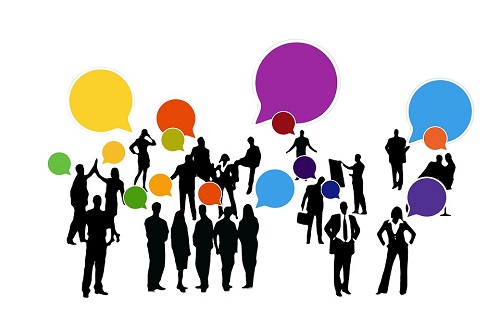
Journal: Profesional de la información (Scopus Q1, WoS Q2)
Theme: Reshaping of politics and international relations
Issue: v. 32, n. 4
Publication date: July-August 2023
Manuscript submission deadline: January 10th, 2023
Guest editors:


Ana Pérez-Escoda
Associate Professor of Digital Communication
Nebrija University, Faculty of Communication and Arts, Madrid, Spain
aperezes@nebrija.es
Raquel Freire
Full Professor of International Relations
University of Coimbra, Faculty of Economics, Centre for Social Studies
rfreire@fe.uc.pt
About the theme
(Dis)information and media discourses are reshaping politics and international relations in a more global and faster way than they used to. On par with the expansion of the digital realm in today’s societies, recent events, such as the Covid crisis or the war in Ukraine, have profoundly affected relations and perceptions of security and politics across Europe. As many authors state “Information has been weaponized” (Gerrits, 2018), a process further increased by social media and digital communication. Within this context, the ‘entanglement of technology with politics’ (Edwards; Hecht, 2010) and the centrality of emotions (Hutchison; Bleiker, 2014) have been particularly important. In these dynamics, the media, considered legitimate social actors to communicate current events to the public, have been adjusting to two key factors: firstly, the rise of social networks where media discourses are exposed to fast spreading, global reaching and users’ opinions (Couldry et al., 2007); and, secondly, the change in the communication paradigm that has led to a different communication between the different actors: media, governments, politicians, institutions and citizens
The discourse of public opinion and emotional appeal using social networking tools as resources points to how the ‘collective dimension of emotions shapes social and political processes’ (Hutchison; Bleiker, 2014), and to the many new issues that have been nurtured, such as highlighted by Munger (2020): clickbaiting, filter bubbles, eco chambers, personalization of information, virality, reactivated more than ever by the role of disinformation and propaganda. Digital literacy (or the lack of it) is increasingly appreciated by academics as a significant factor to explain or avoid these issues (Guess; Munger, 2022). This communication context has altered the nature of communicating itself, of how issues are framed and potentially manipulated and reinterpreted, with huge impact on international relations (Barnett et al., 2017). This has created a new state of affairs in which media and political discourses have been merged progressively in a digital and online scenario in which new agents have taken advantage of the different rules addressing the communicative ecosystem and altering international relations and the democratic sphere.
Topics
- The shaping of international relations in/by media discourses.
- Social media replacing media as gatekeepers of public opinion.
- Polarization processes fostered by media reaching international relations.
- Citizenship perception of the mediatization of international relations.
- Digital literacy as a catalyst in polarization / democratization processes.
- Digital literacy as key aspect in the interpretation of international relations.
- Media discourses shaping citizenship perceptions on political issues.
- Improving digital literacy from the study of hate speech and polarization.
- Power and technopolitics.
- Political discourses and media discourses in the digital sphere.
- Disinformation, fake news and propaganda as a major challenge for international relations.
- Actors in media or social media discourses representing international relations.
- The role of emotions in foreign policy and their framing in media discourse.
References
Barnett, George A.; Xu, Weiai-Wayne; Chu; Jianxun; Jiang, Ke; Huh, Catherine; Park, Ji-Young; Park, Han-Woo (2017). “Measuring international relations in social media conversations”. Government information quarterly, v. 34, n. 1, pp. 37-44.
https://doi.org/10.1016/j.giq.2016.12.004
Couldry, Nick; Livingstone, Sonia; Markham, Tim (2007). Media consumption and public engagement. Palgrave McMillan. ISBN: 978 0 02324738 3
Edwards, Paul N.; Hecht, Gabrielle (2010). “History and the technopolitics of identity: The case of Apartheid South Africa”. Journal of Southern African studies, v. 36, n. 3, pp. 619-639.
https://doi.org/10.1080/03057070.2010.507568
Gerrits, André W. M. (2018). “Disinformation in international relations: How important is it?”. Security and human rights, v. 29, n. 1-4, pp. 3-23.
https://doi.org/10.1163/18750230-02901007
Guess, Andrew M.; Munger, Kevin (2022).“Digital literacy and online political behavior”. Political science research and methods, Online first.
https://doi.org/10.1017/psrm.2022.17
Hutchison, Emma; Bleiker, Roland (2014). “Theorizing emotions in world politics”. International theory, v. 6, n. 3, pp. 491-514.
https://doi.org/10.1017/S1752971914000232
Munger, Kevin (2020). “All the news that’s fit to click: The economics of clickbait media”. Political communication, v. 37, n. 3, pp. 376-397.
https://doi.org/10.1080/10584609.2019.1687626
Manuscript submission
If you wish to submit an article, please read carefully the journal’s acceptance criteria and rules for authors:
https://www.scimagoepi.com/authors.html
And then send us your article through the OJS journal manager on:
https://revista.scimagoepi.com/index.php/EPI/submissions
IMPORTANT FOR AUTHORS
Registering as an author
If you are not yet registered as an author, do so here:
https://revista.scimagoepi.com/index.php/EPI/user/register
EPI goes to 100% OA from January 2023
Publication fees
EPI will be a 100% open access journal, without subscribers, with the option of publication free of charge disappearing. The journal does not receive any subsidy and will be financed by charging APCs (article processing charges).
Transitional period until December 31, 2022
The articles that are currently submitted and until the end of the year will be published openly, applying a provisional reduced APC of €600.
From January 1, 2023
The new APC of €1,250 will be applied to items received after January 1, 2023.
Bilingual publication
All the articles of Profesional de la información are published in English or in English + Spanish.
Format of the references
To submit an article it is not necessary that the cited bibliographical references be in the format or style of EPI. If the article is approved, the authors will be asked to send the bibliography in the journal format.
Evaluation
All articles published in EPI are double blind peer reviewed by 2 or more members of the international Scientific Committee of the journal, and other reviewers, always external to the Editorial Board. The journal undertakes to reply with the review results.
